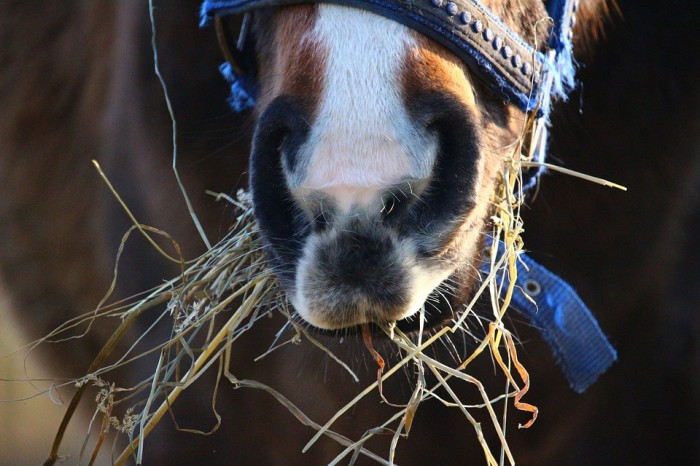
Effects on colon after change from hay to silage or haylage
The objective of this study was to investigate the effect of an abrupt change from grass hay to silage and from hay to haylage from the same crop on the equine colon ecosystem, and to compare the adaptations with the silage and haylage diets. The hypothesis was the fermented feed (>3% lactic acid) would change the composition and activities of the colon microflora.
The horses were randomly assigned to diets in a crossover design. The study started with a preperiod of 21 days with the hay diet, followed by an abrupt feed change to the haylage for 2 of the horses and to the silage for the other 2 horses. The silage and haylage diets were fed for 21 days. All horses then had a new second preperiod of hay for 21 days, followed by an abrupt feed change to the opposite haylage or silage for 21 days.
The data was divided into 2 parts. The first part was an analysis of short-term effects including samples taken before (−20 h) and at 4 and 28 h after the abrupt feed change. The second part was an analysis of longterm effects including samples taken before (−20 h) and at 8, 15, and 21 d after the abrupt feed change.
In conclusion, an abrupt feed change did not have any major short-term effects on the colon ecosystem, which indicates that grass forage with similar chemical and botanical composition, but preserved by different methods, could safely be rapidly introduced to maintenance fed horses. During the subsequent 3-wk period, DM concentration of colon digesta and feces decreased, and there were alterations in the lactobacilli and streptococci bacterial counts. The bacterial changes during the weekly observations need further investigation.
> From: Muhonen et al., J Anim Sci 87 (2017) 8. All rights reserved to Journal of Animal Science. Click here for the online summary.


